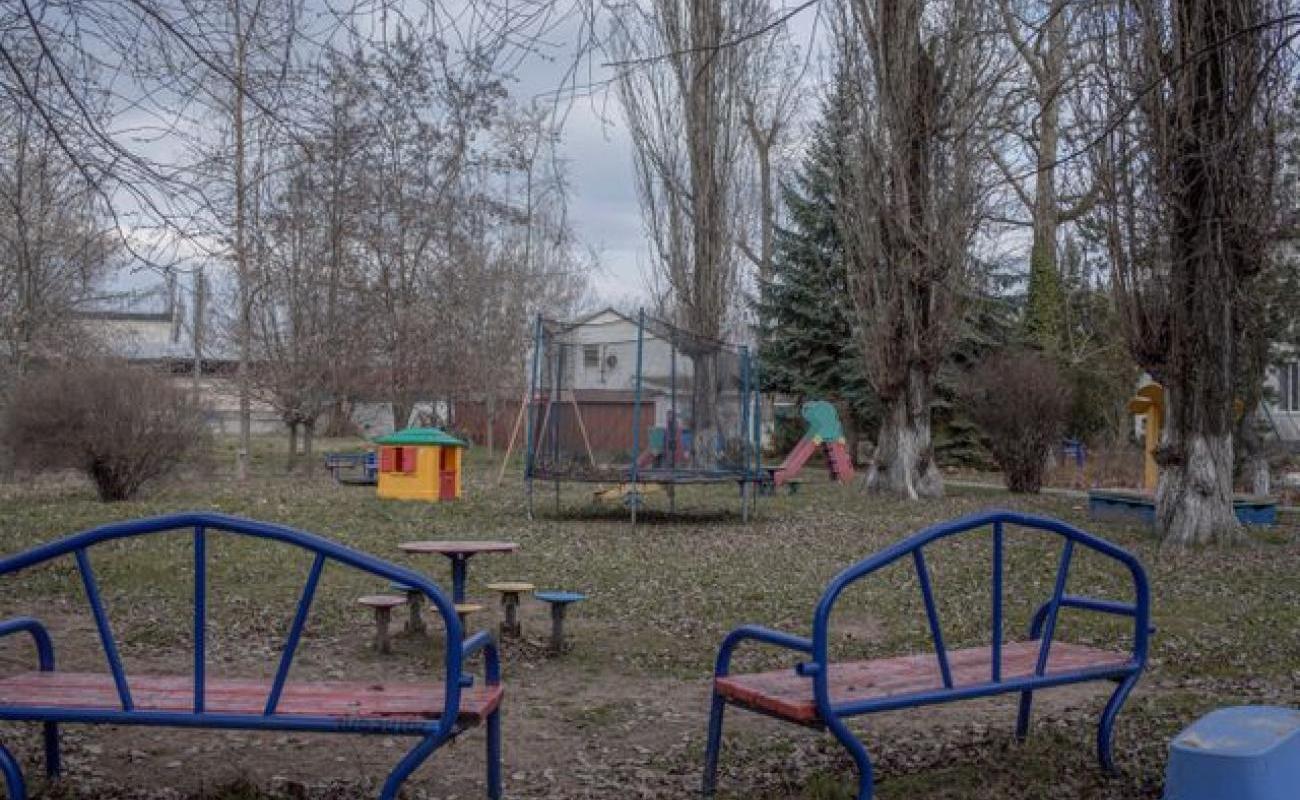The Abducted Children of Ukraine

The Kremlin has made a habit of seizing Ukrainian boys and girls, with the intention of transforming them into Russian citizens. Families are fighting to get their children back.
It's a gray day at the end of March, and Natalia Zhornyh and her son Artem have just returned to their home country across the Belarusian border. The mother drags a suitcase past men in uniform, rusty tank barriers and concrete pyramids to the Ukrainian village of Domanove. Then, she bursts into tears.
Her journey took her hundreds of kilometers - through Ukraine, Poland, Belarus and Russia into the occupied region of Luhansk. And back. But she made it. The 32-year-old, a woman with bright red hair and high tops, managed to get her 15-year-old son back.
The Russian occupiers had kidnapped the boy, and mother and son were separated for six months. At the border crossing, Zhornyh describes her desperate search for her son while smoking one cigarette after the other. Artem, his cap pulled down deep over his face, stands next to her making jokes. It's been a long time since Zhornyh and her son have been able to laugh together.
According to Ukraine, at least 19,500 children have been taken to Russian boarding schools or foster families since the beginning of the war. Most of the time, parents don't even know where their children have disappeared to. Kyiv says it has thus far only been able to retrieve 328 of the abducted boys and girls.
There is a sad tradition of using children as weapons in war. During World War II, the Nazis stole Polish children to "Germanize" them; in conflicts like the one in the Democratic Republic of Congo, children were kidnapped to be used as soldiers. Often, the tactic is used as a means of coercing parents to talk or to demoralize them. Most of all, though, the goal is to rob a country of its future.
Now, it is Russia that is abducting children in full view of the global public on a scale not seen in Europe in years.
Karim Khan, the chief prosecutor at the International Criminal Court, believes that the Kremlin wants to "permanently remove these children from their own country" and recently issued arrest warrants for Putin and Maria Lvova-Belova, his commissioner for children's rights. The court has accused both of carrying personal responsibility for the abduction of Ukrainian children.
Invader Posing as a Helper
For Russian President Vladimir Putin, such accusations are groundless. Since the beginning of the war, he has been claiming there is a need to protect Ukraine's "oppressed" Russian-speaking population. Russian soldiers, he insists, are "evacuating" Ukrainian civilians – and the purported rescue of Ukrainian children has been celebrated in the Russian media. The invader posing as the helper.
Nor is the Kremlin hiding the fact that it intends to make Russian citizens out of Ukrainian children. Indeed, Putin signed a decree at the end of May 2022 making it possible to fast-track the naturalization of children from Ukraine who are wards of the state. Foster parents and even directors of orphanages, homes or social service agencies can apply on behalf of the children.
In doing so, Putin is taking advantage of the fact that, relative to the country's population, there are more children in orphanage or foster care in Ukraine than in any other European country. Many of these children aren't even orphans. Instead, they might have parents who are addicted to alcohol or drugs or are simply too poor to take proper care of their children. UNICEF has criticized conditions in Ukrainian homes in the past, and the war has only served to exacerbate the problem. In the turmoil of the fighting, the responsible government agencies lost track of thousands of children.
Including Artem, who - as his mother explains on this afternoon at the border crossing - had spent the last few years at a boarding school in Kupyansk, a small town in the eastern Ukrainian region of Kharkiv.
She was only 17 years old when her son was born. She says that she and her husband worked on a farm until late at night. "We weren't able to take care of him," says Natalia. She says Artem liked the boarding school where he lived. He rode a BMX bike and won medals in swimming, and he was able to visit his parents, who lived in a nearby town, on the weekends.
